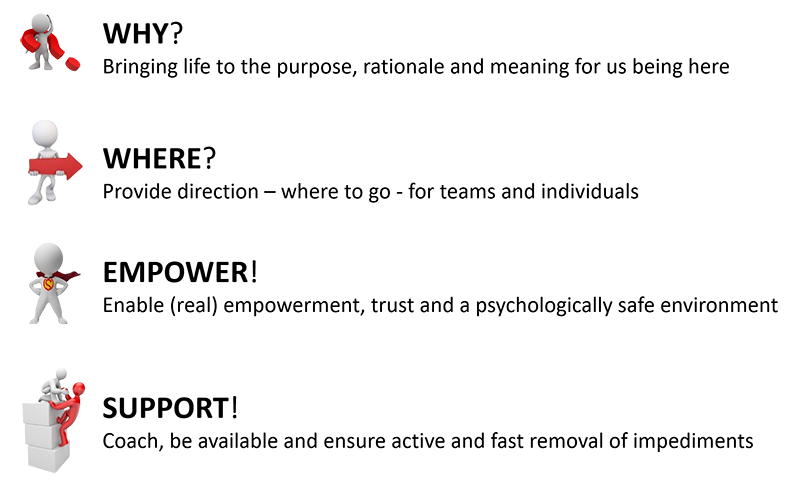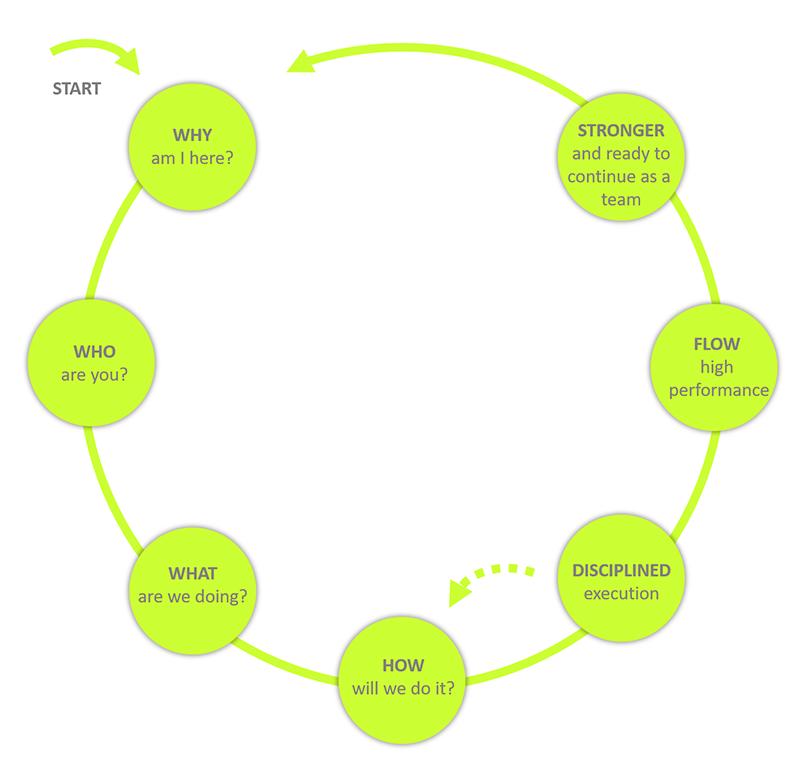Generally speaking we’re as humans driven by a few intrinsic motivators
- The deep feeling of a (higher) purpose
- Being part of a team
- Providing results and making a difference
- Having a genuine influence on the decisions
- Doing real and value-adding work – in contrast to pseudo work in a highly bureaucratic organization
- Having the opportunity to grow – professionally and personally
- Fear – for not being good enough, the unknown, loss, failure, getting hurt, death, loosing control, being alone, facing rejection, being inadequate … and the list goes on.
All these motivators are directly linked to the discipline of Servant Leadership which in itself is the foundation for strong and highly motivated teams.
The purpose with this post is to illustrate the link between these intrinsic motivators, Servant Leadership and motivated teams.
Servant Leadership

In the earlier article on the importance of missionaries and a strong product culture, you’ll find a direct line to Servant Leadership. And yes – simple on the surface, but extremely challenging in practice!
Strong and highly motivated teams
It takes time to build a strong and highly motivated team which is one of the core reasons why product-led organizations use stable product teams in contrast to ad-hoc project teams. The model below can be used for ad-hoc project teams though the latter part “ready to continue as a team” becomes void. The real benefits are seen with stable (product) teams.
The rationale behind this Team Performance model is to build and maintain strong teams.
- WHY-WHO
This first part is traversed faster and faster for each iteration due to exactly the continuity. - WHAT
For a product team this would be a (hard) business / customer problem. - HOW
This is e.g., the product discovery in product teams finding the best solution to the problem. - DISCIPLINED-FLOW
Solution implementation. Note the iteration to HOW as knowledge is gained in execution. - STRONGER
The team has matured and gained new knowledge and insights making it even better prepared for the next problem to be solved
- WHY-WHO

Inspired by the Drexler/Sibbet Team Performance Model ®

